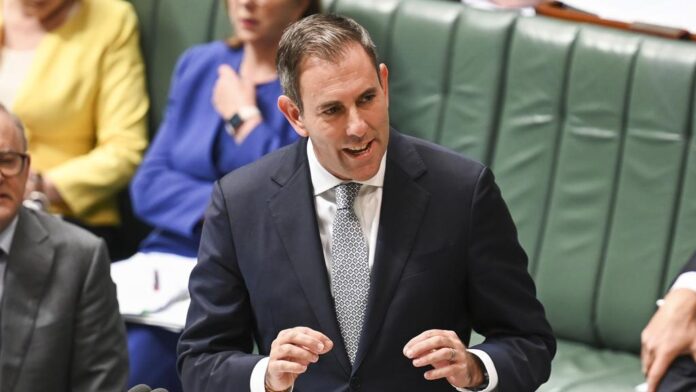The federal government has urged Australia’s wage umpire not to use incoming tax relief as an excuse to halt lifting wages.
The federal government has endorsed a salary increase for the country’s most economically vulnerable employees, advising the industrial arbiter against substituting forthcoming tax reductions for low-income earners as a replacement for elevating the national minimum wage.
This stance follows appeals from business advocacy groups to constrain the magnitude of this year’s wage escalation in the annual wage review conducted by the Fair Work Commission, citing alterations in Labor’s implementation of stage 3 income tax reductions.
In its formal submission to the Commission, the government has contended that actual wages should not regress as Australia’s low-wage earners grapple with persistent burdens stemming from high living costs.
“A draft submission stated that current economic conditions pose challenges, with global uncertainties, heightened inflation, and increased interest rates dampening activity. Though inflation has eased to a two-year low, it remains above the RBA’s target range of 2 to 3 percent,” the statement read.
“Despite nominal wage increments and the restoration of yearly real wage growth, the actual value of statutory wages has dwindled in recent years due to the global inflationary climate.
“Low-income workers and their families are disproportionately affected by rising living costs, as they typically lack savings to cushion the blow of escalating expenses.”
The government’s standpoint echoes that of Labor’s submission last year, which effectively advocated for a salary boost for low-wage earners commensurate with inflation, influencing a 5.75 percent elevation in all award rates and a raise in the national minimum wage from $812.60 to $882.80 per week.
Labor’s reaffirmed support for low-wage earners ensued after it augmented income tax alleviation for Australians with lower incomes by revising its previously enacted stage 3 income tax cuts.
Under the impending tax framework, set to take effect on July 1, the average employee stands to gain an additional $29 weekly, while those at the bottom end of the pay scale will see an increase of $15.
In its submission to the Fair Work Commission, the government asserted that these cuts will offer relief from living expenses in a manner that doesn’t contribute to inflationary pressures but are designed to be “additional” to any upsurge in award and minimum wages.
In its separate submission, the Australian Industry Group advocated for the wage arbitrator to fully consider the impending tax alterations when deliberating this year’s minimum wage increase.
The Fair Work Commission routinely evaluates the ramifications of tax revisions during its annual wage review.
In a statement, Treasurer Jim Chalmers emphasized that workers are entitled to both tax reductions and a wage hike.
“We’ll urge the Fair Work Commission to ensure that the real wages of Australia’s low-wage earners do not regress,” Dr. Chalmers stated.
“While we’ve made commendable strides in combating inflation and observed a resurgence in real wage growth earlier than anticipated, many Australians still face pressure, particularly those on lower incomes.”


